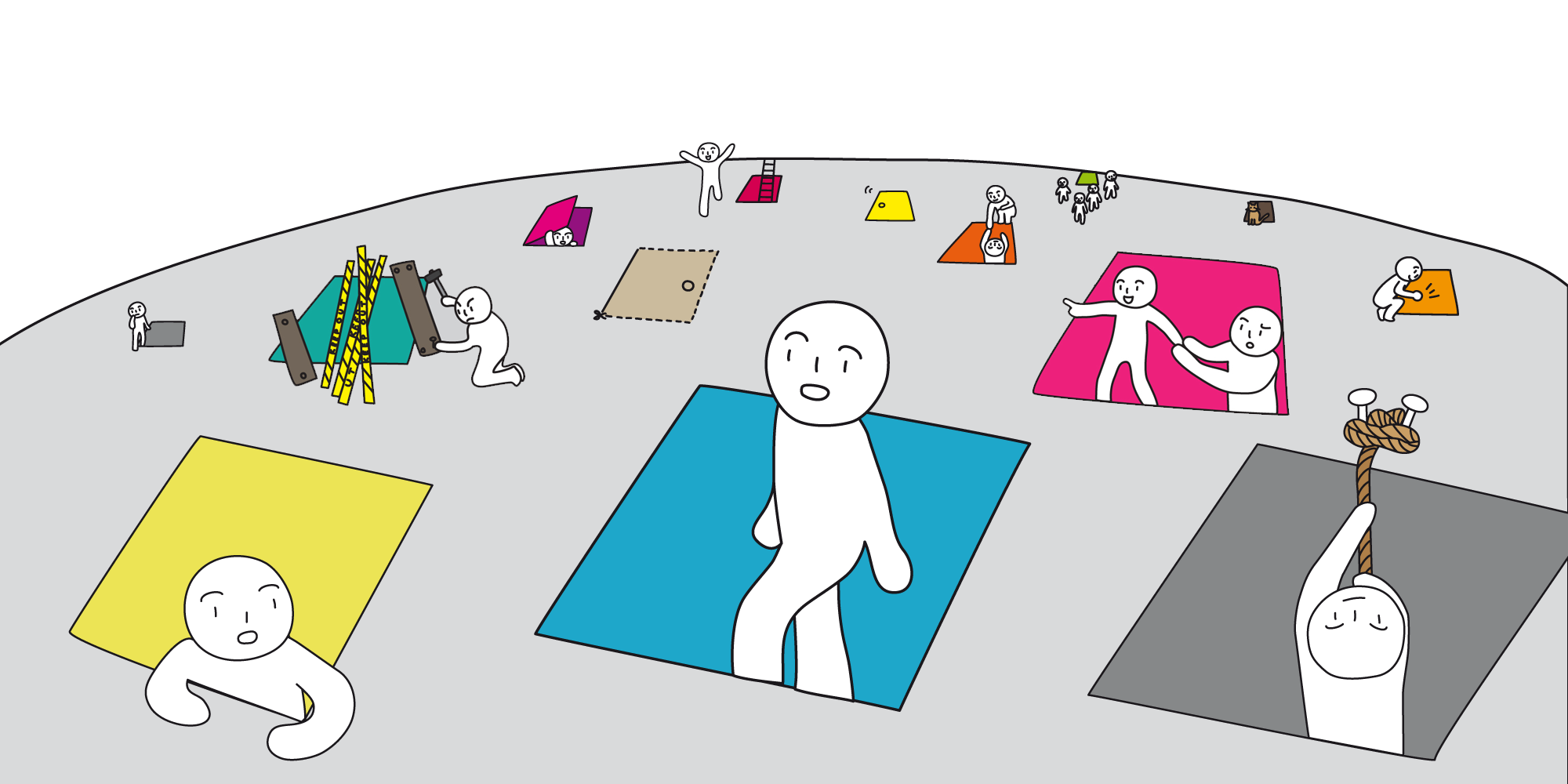Programm
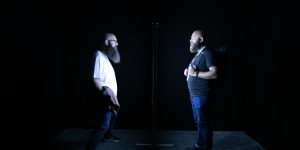
100 Jahre Bauhaus: We are not alone / Shared Habitats
We are not alone consoles and warns us: it promises an answer from the ecosphere – animals, plants, cosmos, which speak to us in an old-fashioned way – just as it reminds us that we still do not understand enough of this ecosphere, just as we overlook many other humans who do not live in our culture, our sphere of life, or our social class. And it reminds us that the world does not end with the Earth or even our own limited field of vision. At the same time, the title points out that our technologies are not passive tools that we use with our hands. Rather, they have mutated into co-creative teammates who make predictions, take decisions, and not only generate their own suggestions for action but also implement them. We are not alone! As artists and descendants of the Bauhaus, we recognize that our role is changing. We no longer believe in the heroic genius of the master who forms the world in a state of intuition. Embedding and feedback reveal that responsible action requires diverse cognitive variations that involve the counterpart in a performative way.
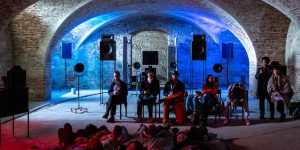
The Vienna Acousmonium
Thomas Gorbach (AT)
Acousmatics (acousma in Greek means “aural cognition“) is the cognitive science of listening; a listening to listening. To make this possible, unheard sounds and compositions are projected through an orchestra of loudspeakers: the Acousmonium.
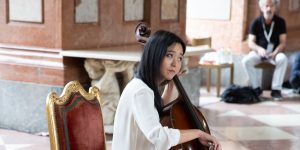
Johann Sebastian Bach: Suites for unaccompanied cello
Yishu Jiang (AT)
The Bach cello suites played in the performance are structured in six movements each: prelude, allemande, courante, sarabande, two minuets or two bourrées, and a final gigue. The Bach cello suites are considered to be among the most profound of all classical music works.
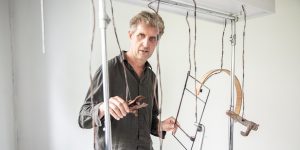
Found Sound Discovery
Robin Weijers (NL), Manolis Perrakis (EL)
Found Sound Discovery explores movement, time and sound. An installation that involves analogue and digital interactions with the world around us. Through sensors and found objects, mechanical and digital interactions create the possibility of discovered sound.
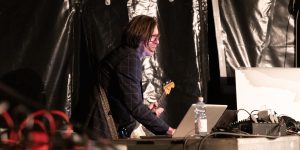
Agora
Christian Fennesz (AT), Lillevan (SE/IE)
Agora is Christian Fennesz’s first solo album since Mahler Remixed [Touch, 2014] and Bécs [Editions Mego, 2014]. At the Festival Fennesz will play his new album Agora alongside visuals by Lillevan.

Species Reclamation Via a Non-linear Genetic Timeline: An Attempted Hymenochirus curtipes Model Induced by Controlled Breeding
Brandon Ballengèe (US)
This project involved the selective breeding of frogs from the Hymenochirus family, located in the Congo. There, biodiversity is threatened by forest clearing and increased demand for wood. Also, political turmoil in Congo has limited biological studies and conservation efforts. In their native habitat, wild Hymenochirus populations may currently be in decline or have become extinct.
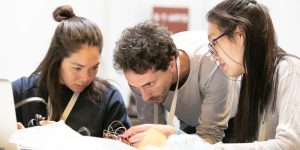
AIxMusic Workshops (Friday)
The AIxMusic Festival will start with a series of workshops at POSTCITY.
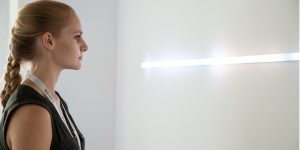
Perception
Cheska Lotherington (UK)
Perception is an experimental light piece that interacts with audience members. A thin rim around the edge of the room on the floor will project the light strips’ color up onto the walls. Three cameras mounted to the ceiling will feed data to the light strips.
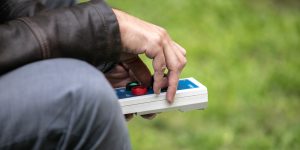
Cumulus – Stratus
Volkmar Klien (AT)
Volkmar Klien lets St. Florian’s bells swing and produce aural shapes in the sky around the abbey with the assistance of AI-based pattern-recognition and interpolation. The shapes emerge and morph to melt back into homogenous sound fields covering everything within earshot. They then subside, to give way to distinct sonic formations from above.

AIxMusic Workshops (Sunday)
In recent years, the academic interest in applying deep learning to creative tasks such as generating text, images or music has drastically increased. These workshops offer everyone the opportunity to try out the AI systems used for making and playing music.
